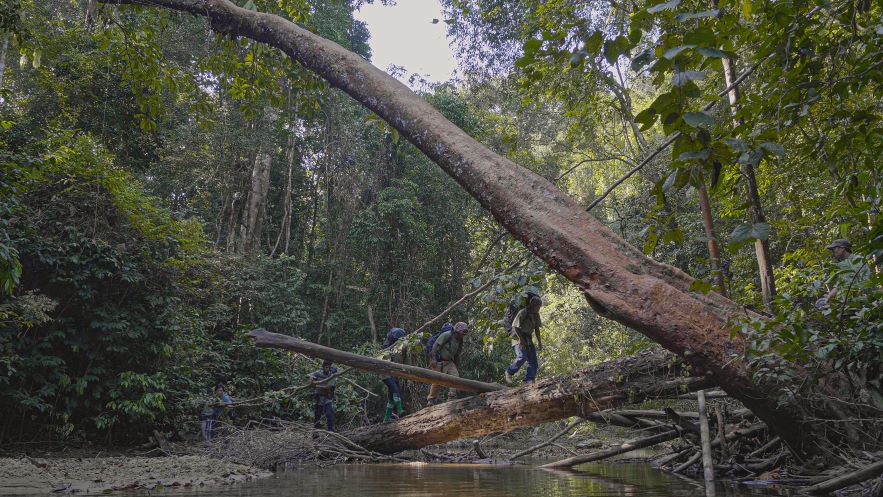Amplifying the Pride of the Voiceless
In stories they told me in childhood, animals were magical creatures.
Deep in the magnificent jungle they lived, speaking human language and singing gentle songs. They were funny and witty – often playing pranks on wandering heroes on quests, testing them with the most clever riddles.
I remembered being in awe of this kingdom of wilderness – and of course their ruler – the elusive, majestic beast that was the tiger.
Tiger, tiger burning bright!
The symbol of strength and courage, the Malayan tiger also lives on my country’s national emblem and flags. Our national sports team is named after them. All Malaysians would agree that the Malayan tiger is our pride.
What I was not aware of (and I’m afraid many are still unaware too) – was that there are fewer tigers living in the wild than there should be.
As a society, we often forget that the tiger is more than stories, symbols and names. It is also a valuable and irreplaceable member of our ecosystem.
An apex predator, the Malayan tiger controls the population of its prey, which in turn maintains ecological balance. This is important not only for wildlife but also people. We rely on their habit for food, clean water and carbon storage. A healthy forest that regulates our climate means a quality life for us all. This, however, may not be the case for much longer.
In the 1950s, there were 3,000 tigers roaming in our forests. Today, there are less than 150.
Critically endangered and on the brink of extinction, our tigers are dying due to ruthless poaching for their skin, bones, meat and even whiskers! They are also losing their homes to rampant deforestation in the name of development.
The need to save the tiger is more urgent than ever.
In 2018, I started volunteering for RIMAU, then a new non-profit organisation founded by my bosses and their friends. None of them had any background in science – just a group of citizens determined to save and protect the Malayan tiger.
We called up everyone we could and engaged with all sorts of communities to spread the message. From a café in Taman Tun Dr Ismail to a district office in Gerik, you name it and I can assure that we’ve called them all.
We found out that many people were willing to listen and more than happy to help and they did that in however way they could. We had a gentleman who put information about us on the menu of his café, an artist who painted a mural to raise awareness, a 15-year-old girl who sold merchandise of her favourite K-pop group and donated all the proceeds to RIMAU!
These, together with many contributions from wonderful Malaysians helped us a lot in kick-starting our projects.
Our biggest and most ambitious project is the Menraq Patrol Unit.
Together with Perak State Parks Corporation (PSPC), RIMAU has created and managed a community-based wildlife protection patrol unit called Menraq in Royal Belum State Park, Perak — an important tiger landscape in Malaysia.
The goal is to nurture a sense of ownership in wildlife conservation amongst the local Jahai. This community patrolling project will not only raise their awareness on the plight of the Malayan tiger and its habitat, but also provide an alternative livelihood to the members and their village as a whole.
Menraq is made up entirely of Jahai people – a local indigenous community that has lived in Royal Belum for generations. For every day a Menraq member patrol, RM10 is contributed to a community fund created to help the villagers with basic necessities, education and emergencies.
It is important for us to engage with the local community as their support is crucial for successful conservation efforts in the long term.
After all, the word Menraq means “people” in the Jahai language.
It is up to us to make the effort and work to change the fate of this iconic animal. The more people are aware of the plight of the Malayan tiger and the more people are involved, the stronger the cause will be.
In my childhood stories, animals are magical creatures who can speak but in reality they have no voice.
We, the people, have to become theirs.





